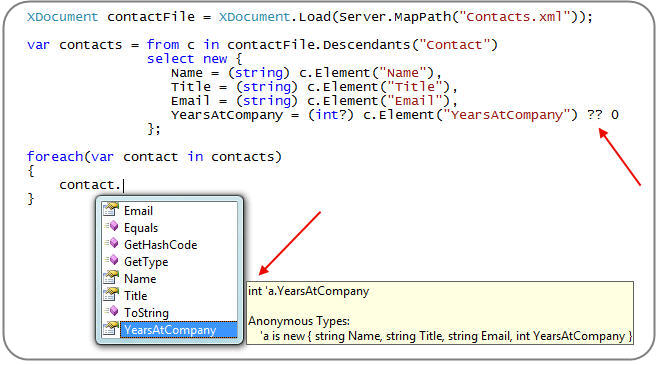asp:GridView
<asp:BoundField DataField="DueDate" HeaderText="Date Requested" SortExpression="DueDate" DataFormatString="{0:M/d/yyyy}" >
<asp:BoundField DataField="PlanAsset" HeaderText="Assets" SortExpression="PlanAsset" ItemStyle-HorizontalAlign="Right" DataFormatString="{0:C2}"> <HeaderStyle />
***************************************************
<asp:TemplateField HeaderText="End Date">
<ItemTemplate>
</asp:TemplateField>
***********************************************************************
<asp:BoundField DataField="DueDate" HeaderText="Date Requested" SortExpression="DueDate" DataFormatString="{0:M/d/yyyy}" >
<asp:BoundField DataField="PlanAsset" HeaderText="Assets" SortExpression="PlanAsset" ItemStyle-HorizontalAlign="Right" DataFormatString="{0:C2}"> <HeaderStyle />
***************************************************
<asp:TemplateField HeaderText="End Date">
<ItemTemplate>
<asp:Label ID="lblEndDate" runat="server" Text='<%# Eval("EndDate","{0:MM/d/yyyy}") %>'> </asp:Label>
</ItemTemplate>
<HeaderTemplate>
<asp:LinkButton ID="lnEndDate" runat="server" Text="End Date" OnClick="lnEndDate_Click">
</asp:LinkButton>
</HeaderTemplate>
<HeaderStyle Width="12%" />
<ItemStyle Width="12%" />
</asp:TemplateField>
***********************************************************************
string CensusFileUrl = null;
Session["DataItemName"].ToString();
Session["AllocationNumber"] != nullSession["PrevccStatusID"] = null,"";((Label)Master.FindControl("lblMstrHead")).Text = "Retirement Solutions";Session["InvestmentGroupID"] = Request.QueryString["InvestmentGroupID"];int.Parse(Session["ProductId"].ToString())int refId = Convert.ToInt32(Session["UserRefflId"].ToString());Session["SelectedMenuName"] = "investmentPaging";protected string SelectedMenuName { get { return Session["SelectedMenuName"] != null ? Session["SelectedMenuName"].ToString() : ""; } }
if (resultSet.Count() != 0){ grdInvestment.DataSource = resultSet; grdInvestment.DataBind(); } else { this.lblMsg.Attributes.CssStyle.Add("font-size", "30px") lblMsg.Text = "Information not found"; }
string tableName;if(!Page.IsPostBack) { tableName = Request.QueryString["tableName"]; if(!string.IsNullOrEmpty(tableName)) { this.LoadSearchDropdownList(tableName); } }if (Request.QueryString["ProductId"] !=null ) { Session["ProductId"] = Request.QueryString["ProductId"]; Session["InvestmentGroupID"] = null; }Conditional (Ternary) Operator (?:)
condition ? first_expression : second_expression;
int input = Convert.ToInt32(Console.ReadLine()); string classify; // if-else construction. if (input > 0) classify = "positive"; else classify = "negative"; // ?: conditional operator. classify = (input > 0) ? "positive" : "negative";?? operator is called the null-coalescing operator.The null-coalescing operator (??) is used to define a default value for a nullable type. It returns the left-hand operand if it is not null; otherwise it returns the right operand. When we work with databases, we often deal with absent values. These values come as nulls to the program. This operator is a convenient way to deal with such situations.http://weblogs.asp.net/scottgu/archive/2007/09/20/the-new-c-null-coalescing-operator-and-using-it-with-linq.aspx
- DateTime dtTransEffectiveDate = Convert.ToDateTime(((DataRow)drData)["TransEffectiveDate"].ToString());
- string TransEffectiveDate = String.Format("{0:MM/dd/yyyy}", dtTransEffectiveDate); //dtTransEffectiveDate.ToString("MM/dd/yyyy");
- form1099R.EndDate = dataRow["EndDate"] == DBNull.Value ? null : (DateTime?)dataRow["EndDate"];
- form1099R.DateUpload = dataRow["DateUpload"] == DBNull.Value ? DateTime.Now.AddDays(-31) : (DateTime?)dataRow["DateUpload"];
- txtPlanTax.Text = planTaxID.Substring(0, 2) + "-" + planTaxID.Substring(2, planTaxID.Length - 2);
@if(imagePath != ""){ <img src="@imagePath" alt="Sample Image" width="300px" /> }




No comments:
Post a Comment